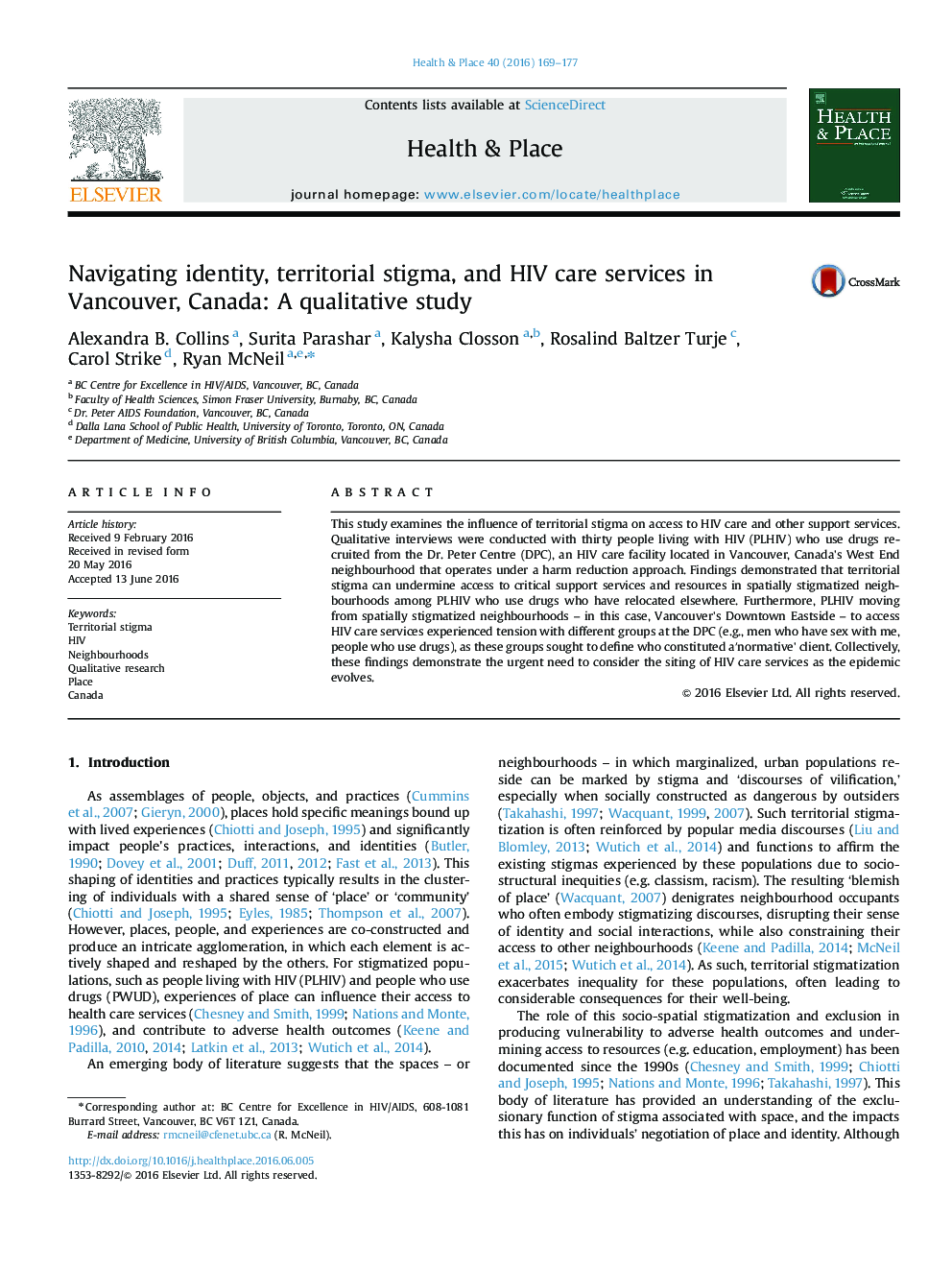| Article ID | Journal | Published Year | Pages | File Type |
|---|---|---|---|---|
| 7457296 | Health & Place | 2016 | 9 Pages |
Abstract
This study examines the influence of territorial stigma on access to HIV care and other support services. Qualitative interviews were conducted with thirty people living with HIV (PLHIV) who use drugs recruited from the Dr. Peter Centre (DPC), an HIV care facility located in Vancouver, Canada's West End neighbourhood that operates under a harm reduction approach. Findings demonstrated that territorial stigma can undermine access to critical support services and resources in spatially stigmatized neighbourhoods among PLHIV who use drugs who have relocated elsewhere. Furthermore, PLHIV moving from spatially stigmatized neighbourhoods - in this case, Vancouver's Downtown Eastside - to access HIV care services experienced tension with different groups at the DPC (e.g., men who have sex with me, people who use drugs), as these groups sought to define who constituted aâ²normative' client. Collectively, these findings demonstrate the urgent need to consider the siting of HIV care services as the epidemic evolves.
Related Topics
Health Sciences
Medicine and Dentistry
Public Health and Health Policy
Authors
Alexandra B. Collins, Surita Parashar, Kalysha Closson, Rosalind Baltzer Turje, Carol Strike, Ryan McNeil,
